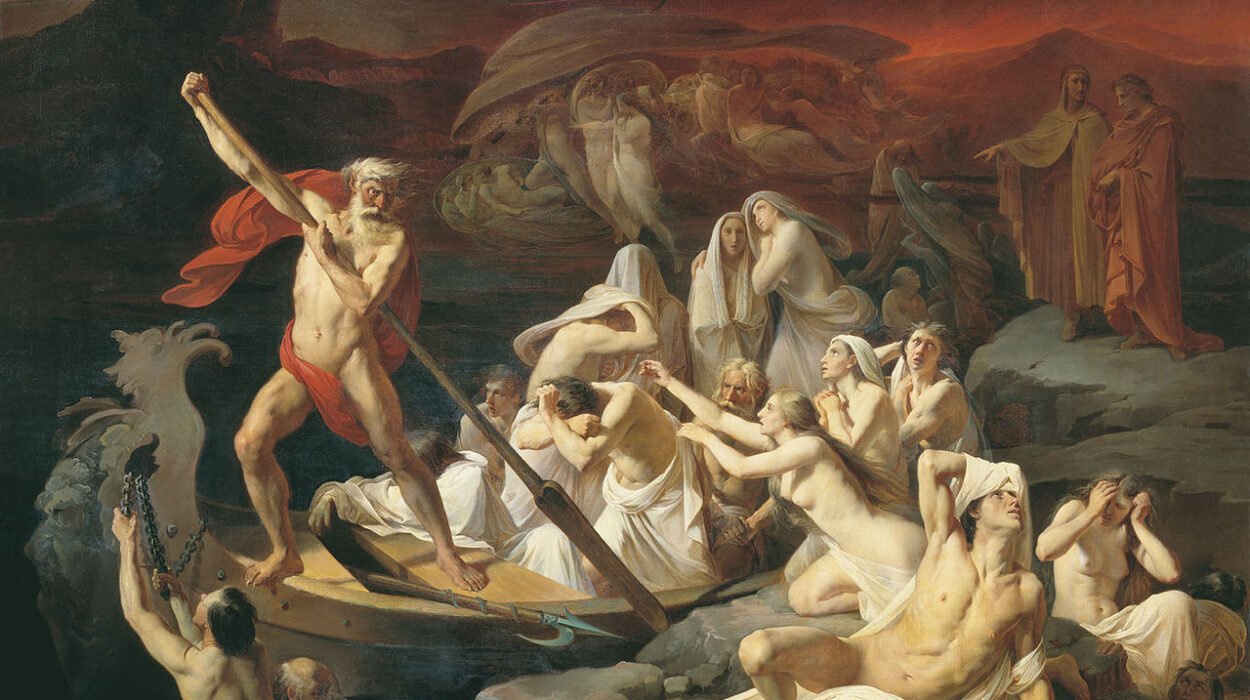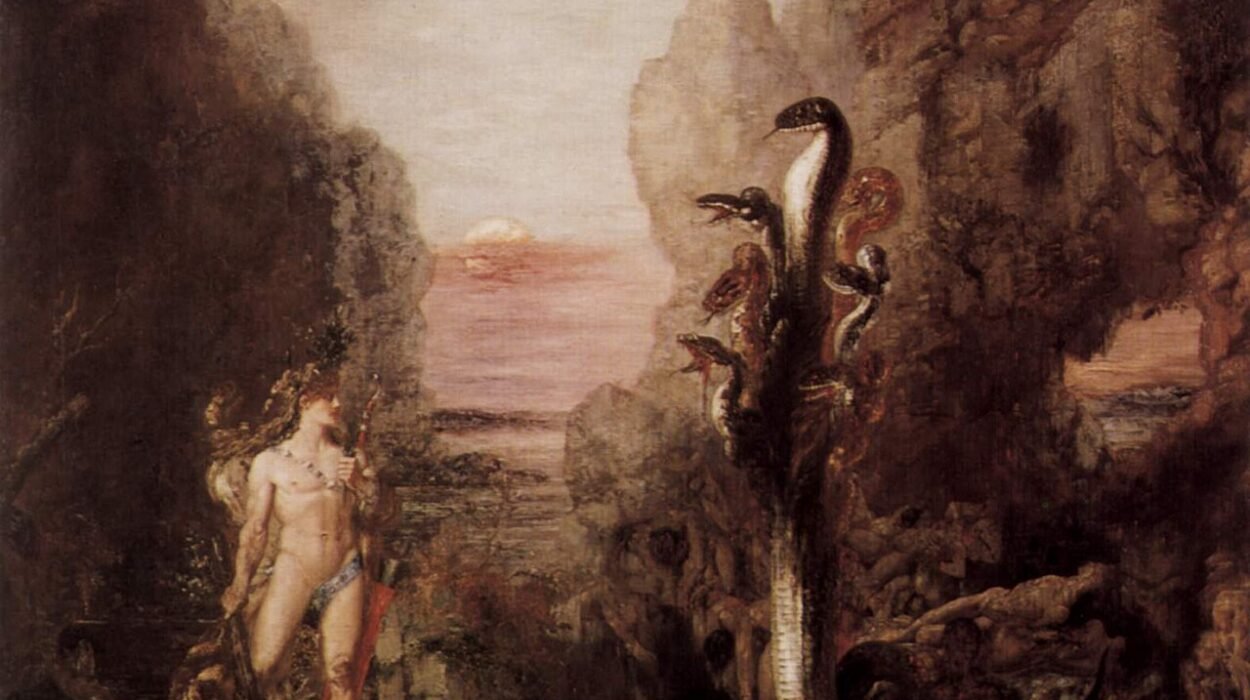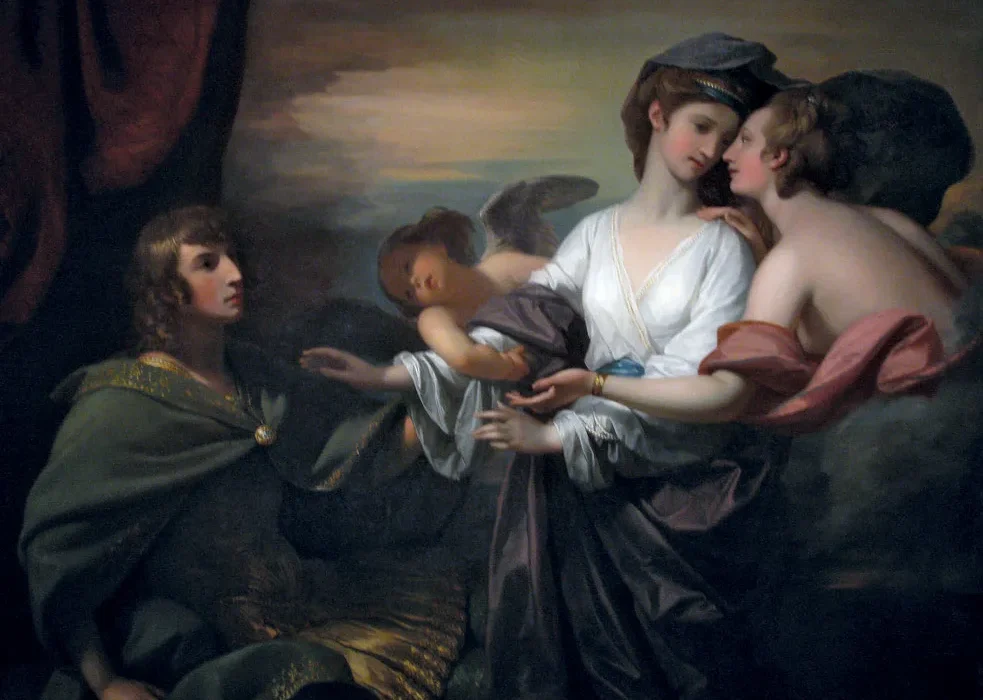In the vast and dazzling world of Greek mythology, no figure embodies both greatness and vulnerability more completely than Achilles. His name evokes visions of battlefields drenched in glory and sorrow, of a warrior whose very presence could turn the tide of war. He was not merely a soldier but a symbol—a man forged of divine lineage, extraordinary strength, and burning passion. Yet, despite his near invincibility, his story is one of fragility, for even the mightiest hero carried within him a flaw that would become his undoing.
Achilles stands as one of the central figures in Homer’s Iliad, but his legend stretches far beyond a single epic. His tale is at once triumphant and tragic, blending the grandeur of godhood with the raw humanity of love, anger, pride, and mortality. To know Achilles is to understand the paradox of human existence: the simultaneous pursuit of eternal glory and the inevitability of death.
The Origins of a Demigod
Achilles was not born as other mortals were. His father, Peleus, was a mortal king of Phthia, while his mother, Thetis, was a sea goddess, one of the Nereids. Their union was not one of pure romance but of destiny, orchestrated by the gods themselves. A prophecy declared that Thetis’ son would either surpass his father in greatness or threaten the rule of Olympus itself. To prevent such upheaval, Zeus and Poseidon, who once desired Thetis, arranged her marriage to Peleus.
From this union came Achilles, a child born into both worlds—the mortal and the divine. From his earliest days, it was clear he was no ordinary boy. Legends tell that Thetis, desperate to make her son immortal, dipped him into the waters of the River Styx. The dark waters rendered every part of his body invulnerable—every part except the heel by which she held him. That unguarded spot would one day seal his fate.
The Making of a Warrior
Achilles’ upbringing was as extraordinary as his birth. The centaur Chiron, wise teacher of heroes, raised him in the wilds of Mount Pelion. There, he was taught not only the arts of war but also medicine, music, and the ways of nature. Chiron trained Achilles to be more than a mere fighter; he was sculpted into an ideal hero, combining strength with knowledge, ferocity with compassion.
Even as a child, Achilles demonstrated unmatched speed and power. His mother, knowing the prophecy that her son’s life would be either long and obscure or short and glorious, attempted to shield him from the destiny of war. Some stories say she disguised him as a girl among the daughters of King Lycomedes on the island of Scyros. Yet fate, relentless as ever, would not be denied. When the Trojan War loomed, the cunning Odysseus uncovered Achilles and drew him into the great conflict that would define his life.
The Call to Troy
The spark of the Trojan War was lit by Helen, the most beautiful woman in the world, whose abduction by Paris, prince of Troy, enraged the Greeks. Bound by oaths and honor, kings and warriors from across Greece gathered to reclaim her. Among them, no warrior shone brighter than Achilles.
Though young, Achilles was destined to be the greatest fighter of his age. His mother, however, warned him of the cost. If he fought at Troy, he would achieve eternal glory but die young. If he stayed home, he would live a long, unremarkable life, his name forgotten.
For Achilles, there was never a choice. Glory, not obscurity, called to him. The roar of battle was his destiny, and with it came the immortalization of his name.
The Wrath of Achilles
Achilles’ role in the Trojan War was both magnificent and tragic. Homer’s Iliad does not tell the full war story but focuses on a single defining event: the wrath of Achilles.
At the war’s height, a bitter quarrel erupted between Achilles and Agamemnon, the leader of the Greek forces. Agamemnon, in an act of arrogance, seized Briseïs, a woman captured by Achilles and dear to him. Insulted and dishonored, Achilles withdrew from the battle, refusing to fight.
His absence was catastrophic. Without their mightiest warrior, the Greeks faltered, and the Trojans, led by the noble Hector, pressed their advantage. This withdrawal revealed much about Achilles’ character—his pride was as great as his power, and his sense of honor could drive him to abandon even his allies in the face of destruction.
Yet within his fury lay a profound humanity. Achilles was not a mindless killer; he was a man of emotions—love, anger, grief—that could sway the course of nations.
Patroclus and the Fire of Grief
The turning point of Achilles’ story came not through battle but through loss. His dearest companion, Patroclus, entered the battlefield wearing Achilles’ armor in an attempt to rally the Greeks. For a time, Patroclus turned the tide, but he fell at the hands of Hector.
When the news reached Achilles, his grief was indescribable. His anger at Agamemnon vanished, replaced by a single, consuming desire: vengeance. The warrior who had once withdrawn from battle now returned with a ferocity that shook the earth itself.
In his grief, Achilles reconciled with Agamemnon, not for the sake of honor or politics but for love of Patroclus. His rage became unstoppable, his presence a storm of destruction.
The Death of Hector
The climax of the Iliad is not the fall of Troy but the duel between Achilles and Hector. Hector, prince of Troy, was not only the city’s mightiest defender but also its most honorable. Unlike Paris, Hector bore the weight of war with dignity, fighting not for personal gain but for his family and people.
Yet Hector’s nobility could not shield him from fate. Achilles, fueled by grief and wrath, pursued Hector around the walls of Troy before striking him down with merciless precision. In his fury, Achilles desecrated Hector’s body, dragging it behind his chariot before the horrified Trojans.
This act of vengeance revealed both the greatness and the flaw of Achilles. His strength was unmatched, his determination unbreakable, but his grief blinded him to compassion. It was only when King Priam, Hector’s father, came to plead for his son’s body that Achilles’ humanity resurfaced. Moved by Priam’s grief, Achilles returned Hector’s body, a gesture that stands as one of the most poignant moments in Greek literature.
The Fatal Heel
Achilles’ story, however, does not end with Hector’s death. Though the Iliad closes before it, other myths recount the hero’s ultimate fate.
Despite his near invincibility, Achilles remained vulnerable in one place: his heel, the spot untouched by the Styx’s waters. It was there that Paris, guided by Apollo, struck him with an arrow. The greatest warrior of the Greeks fell, not in open combat but by a weapon aimed at his single weakness.
This moment immortalized the idea of the “Achilles’ heel”, a metaphor for vulnerability hidden within strength. It is a reminder that no being, however mighty, is without flaw.
The Legacy of Achilles
Achilles died young, just as his mother had foreseen, but his choice of glory over obscurity was fulfilled. His name resounds through history, his deeds woven into the fabric of myth. He became the ultimate symbol of the tragic hero: invincible in battle yet undone by fate, consumed by wrath yet redeemed by compassion, mortal yet immortal through story.
The Romans revered him, medieval poets sang of him, and modern writers and artists continue to draw inspiration from his tale. The phrase “Achilles’ heel” has entered everyday language, a testament to the enduring power of his legend.
But Achilles is more than a symbol of vulnerability. He is a reflection of the human spirit, embodying our desire for greatness, our struggle with pride, our grief, and our longing for eternal remembrance.
Achilles in Culture and Psychology
Beyond myth, Achilles lives in culture, literature, and psychology. Sigmund Freud coined the term “Achilles complex” to describe the drive for recognition and glory, often linked with destructive pride. Military leaders and athletes alike have been compared to Achilles, admired for their unmatched skill but warned of their fatal flaws.
In literature and film, Achilles is often portrayed as both awe-inspiring and deeply human. From Homer’s verses to modern retellings, he embodies the tension between heroism and vulnerability, passion and reason, mortality and immortality.
The Human Heart of a Myth
What makes Achilles so enduring is not simply his power or his divine origins but his humanity. He loved, he grieved, he raged, and he sought meaning in a world ruled by fate. His story is not just about war but about the essence of being human—the balance between strength and fragility, between the desire for eternal glory and the acceptance of mortality.
Achilles reminds us that no one is truly invincible. Yet, in choosing a life of meaning, however short, he transcended death. His heel may have been vulnerable, but his name became unbreakable.
Eternal Glory and Fragile Flesh
Achilles’ tale is, at its core, a meditation on the human condition. We are all, in some way, like him: striving for greatness, driven by passions, vulnerable despite our strengths. His life embodies the eternal tension between the immortal dreams we chase and the mortal limits we cannot escape.
The invincible warrior with the fatal heel still walks among us, not on battlefields but in our aspirations, our pride, our grief, and our desire to leave behind something that endures.
For in Achilles, we see both the hero and ourselves. And through him, we remember that while death is inevitable, glory—the memory of a life lived with passion and courage—can truly be eternal.






